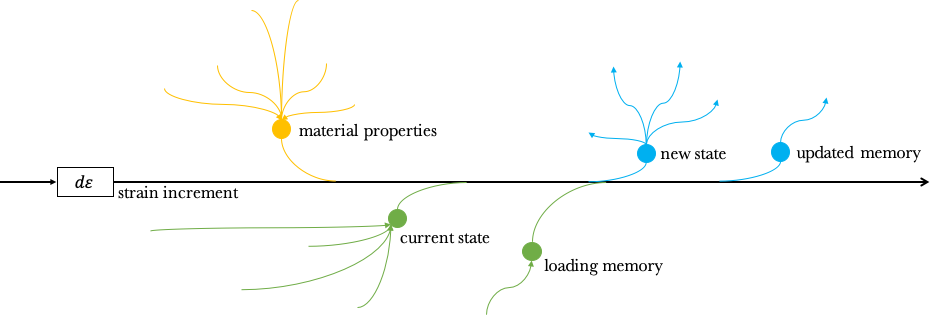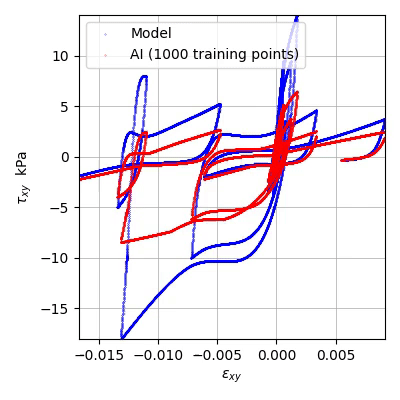
Data-driven Constitutive Modeling by Soft Computing
Constitutive models that can accurately describe materials' inelasticity behaviors are important to engineering simulations. When implemented in existing numerical frameworks such as the finite element (FE) or finite difference (FD) methods, such constitutive models can require intensive computations. Moreover, complex material behaviors are usually difficult to be described using existing equations. To this end, this study aims at developing a neural networks-based approach for constitutive inelasticity modeling that is capable of learning complex material behaviors based on data, faster than existing methods, and can be implemented in general continuum simulation frameworks (FE/FD codes). When compared with physics-based constitutive model, the bio-inspired soft-computed model is precise and faster.

Fig. 1 Stress-strain generated by neural network compared with the original constitutive model
···